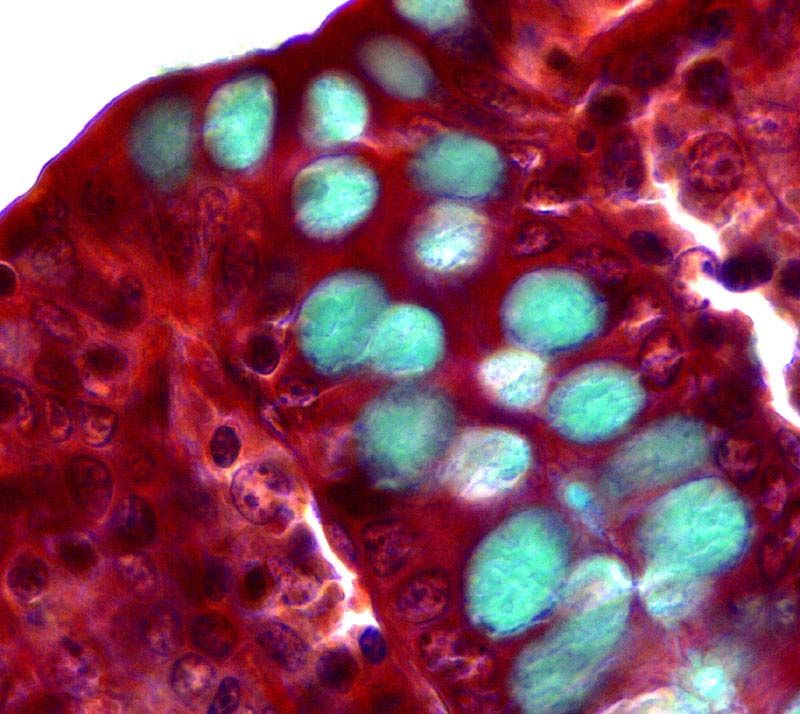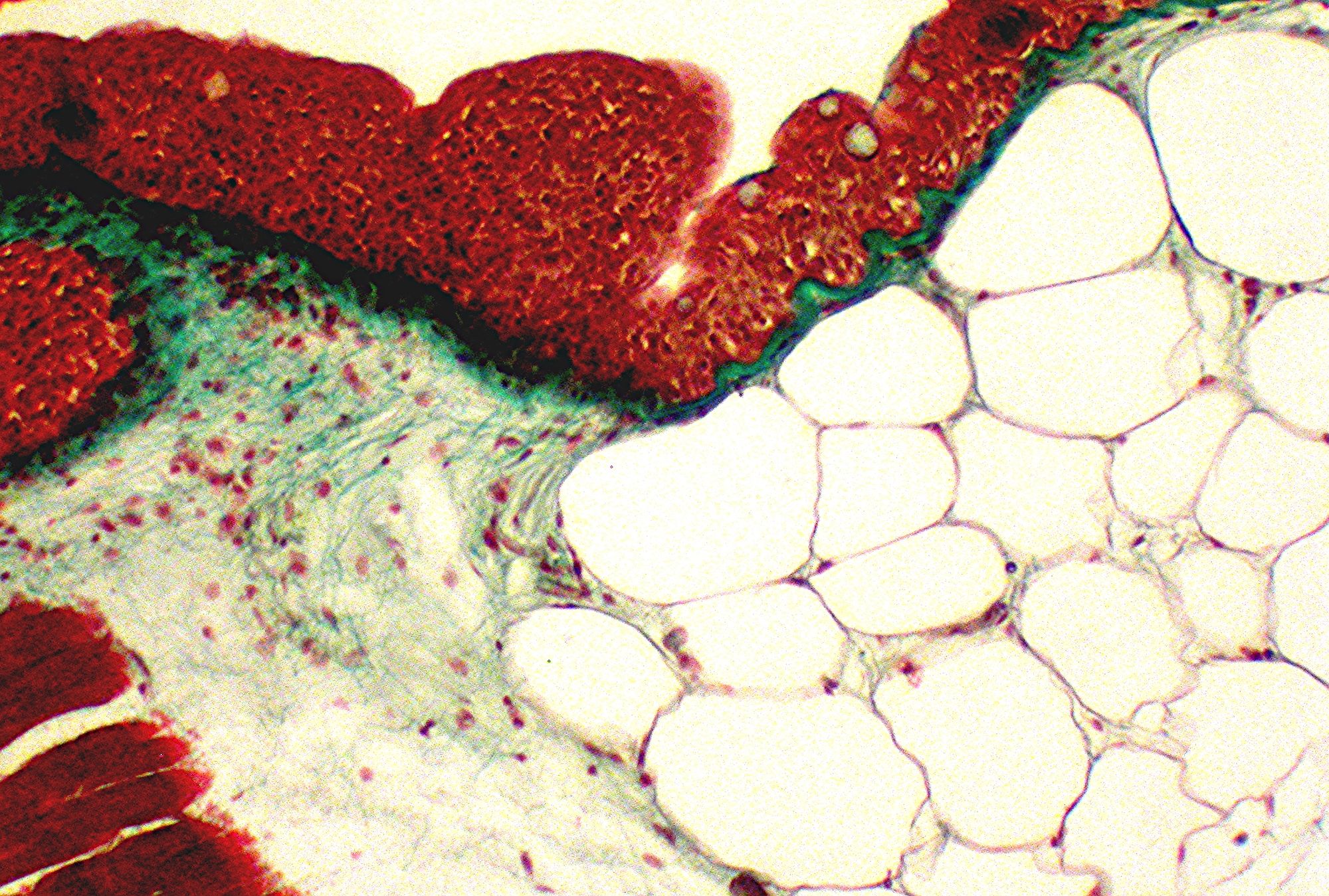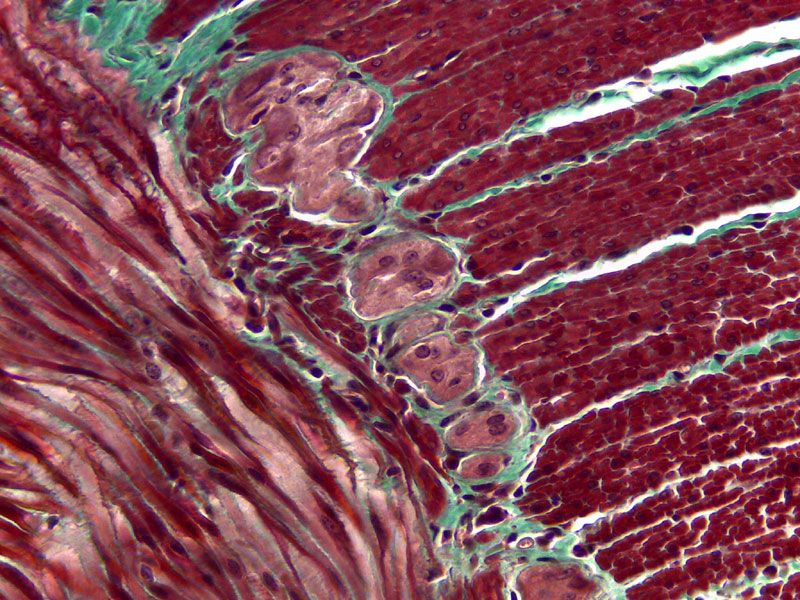By Conlan Doherty, 4th Year, Cellular and Molecular Medicine
A new study involving the University of Bristol, identifies that differences in body fat and its distribution between men and women is a risk factor for colorectal cancer. Colorectal cancer is the fourth most common cancer in the UK, with 42,000 people being diagnosed per year.
Colorectal cancer is diagnosed when cells of the large bowel bypass appropriate fail-safes and divide uncontrollably. Cell division is a natural process of the cell’s life, however, is usually carefully regulated. Uncontrollable cell division in the bowel initially presents as small growths called polyps, which, when large enough, threaten to invade surrounding tissue. Catching these polyps early and removing them mitigates cancer progression.

Natasha Paton of Cancer Research UK said ‘It’s well established that keeping a healthy weight affects many types of cancer. Most research linking excess weight to cancer uses BMI, but this study adds to the evidence that carrying excess fat around the waist is also important.’
It is known that high levels of fat (adiposity) in the body increases the risk of colorectal cancer. Adipose tissue has a high metabolic activity when the body is at rest and secretes certain chemicals that encourage tumour development. Clinical obesity also elicits higher cholesterol and fatty acid concentrations in the blood, thus altering the body’s metabolism in order to respond appropriately. The risk of colorectal cancer can be largely reduced with healthy eating, staying active and maintaining a healthy weight.
high levels of fat in the body increases the risk of colorectal cancer
A partnership between the University of Bristol and the International Agency for Research on Cancer (IARC) set out to understand whether there was an association between body fat and colorectal cancer risk. The study was co-funded by the World Cancer Research Fund (WCRF), Cancer Research UK and Diabetes UK, and used genome-wide association studies (GWAS) to assess genetic characteristics that might allude to any notable links between body fat and colorectal cancer.
The GWAS utilised Mendelian randomisation in which genetic information represented a proxy measure for body fat. Mendelian randomisation is a method that evaluates the variation between genes of a known function, in order to see whether differences in the expression of these genes has an effect on disease characteristics. This allowed researchers to discern any connections between adiposity and genetic risk of colorectal cancer, using data from a sample of 100,000 participants.

Dr Anna Diaz Font, Head of Research at WCRF remarked ‘We known that being overweight or obese increases the risk of at least 12 different types of cancer, including colorectal cancer. But this new research reinforces how important it is to include a wide and diverse range of people in research studies, as we don’t yet fully know the differences gender or race may play when it comes to risk of cancer.’
The study shed light on how the distribution of fat around the body can affect the risk of colorectal cancer. Markable differences were found between the association for men and women. Trends were found describing that if men were to experience an increased BMI of five kg/m2, their risk of colorectal cancer rises by 23 per cent, compared to an increased risk of only nine per cent in women. Waist-to-hip ratio was also assessed, of which a larger ratio posed an increased risk of colorectal cancer in women and less in men.
the distribution of fat around the body can affect the risk of colorectal cancer
Therefore, an increased BMI is a greater risk factor for men, whereas a larger waist-to-hip ratio is a greater risk factor for women. These findings highlight the sex-specific differences in the risk of colorectal cancer, which are to an extent, attributed to the distribution of body fat.
Dr Emma Vincent, Research Fellow at Bristol Medical School said ‘Our study, which is the largest to look at the difference between body fat and colorectal cancer risk in men and women, reveals the need for a more nuanced approach when trying to prevent cancer. We are now working to understand exactly how increased body fat causes colorectal cancer, which may give us new targets for reducing risk. This is important because maintaining weight loss is still very difficult.’
Genetically modified viruses could be the key to treating chronic kidney diseases
Plodding along: my run through lockdown
Natasha Paton added ‘People can reduce their risk of bowel cancer by keeping a healthy weight, eating a diet with lots of fibre and less red and processed meat, drinking less alcohol, and not smoking. Diagnosing bowel cancer early saves lives, so if you notice any changes that aren’t normal for you tell your doctor. And we’d encourage people to consider taking up bowel cancer screening when invited.’
This study offers new insights into risk factors pertaining to colorectal cancer and can help inform and encourage healthy lifestyles as a preventative measure against cancer development.
Featured Image: flickr / Franck Genten
How have you been keeping healthy throughout this past year?









